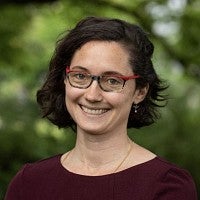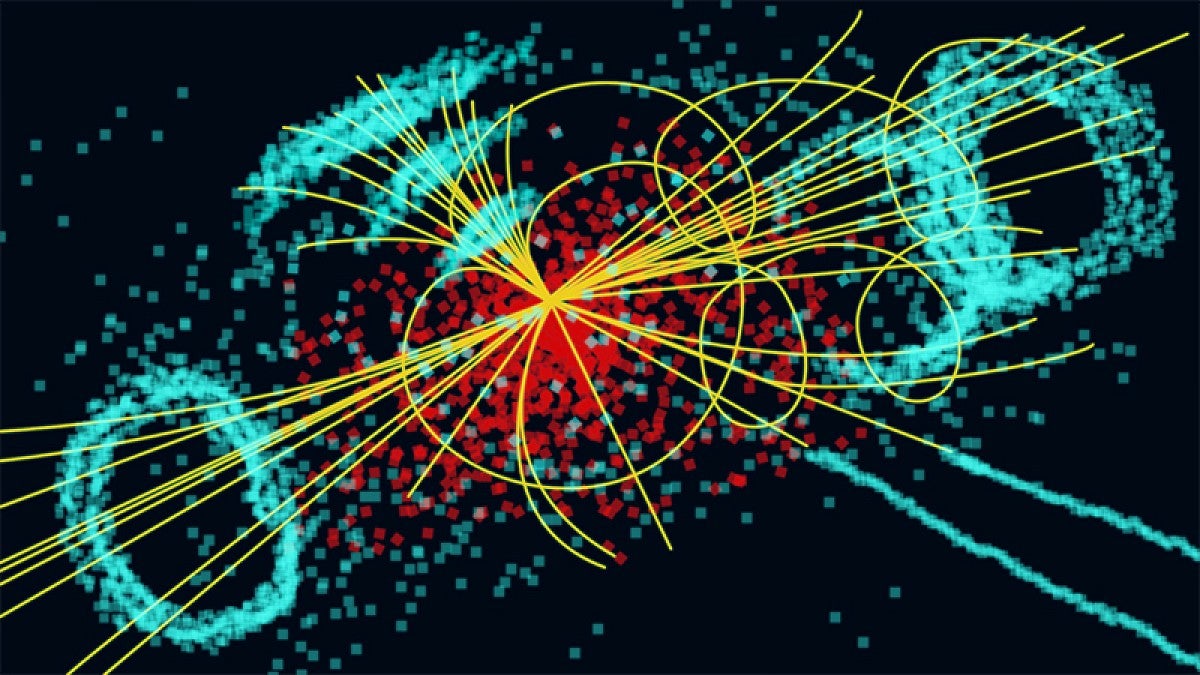Laura Jeanty’s search for new particles that may shed light on dark matter and explain why the Higgs Boson has the mass it does has landed the UO physicist five years of financial support from the U.S. Department of Energy’s Early Career Research Program.

“I am honored to receive this award,” said Jeanty, who joined the UO in September 2018 after postdoctoral work at the Lawrence Berkeley National Lab. “It is a tremendous opportunity that will allow me and my group to pursue one of the most promising avenues where new discoveries might await in particle physics.”
Jeanty is seeking fundamental particles produced by high-energy proton collisions at CERN. Predicted by a theory called supersymmetry, she said, “these particles could clarify the enigma of dark matter, could explain the mass scale of the Higgs boson and might be essential to help unify the theories of the fundamental forces.”
In October, Jeanty will become co-leader of the ATLAS team that is searching for supersymmetry. The UO’s research group is looking for signatures of such particles that might travel through the ATLAS detector for some distance before decaying.
Winners of the DOE’s early career award are tenure-track assistant or associate professors at a U.S. academic institution or a full-time employee at a DOE laboratory who have received doctoral degrees in the past 10 years. They also must be part of one of the DOE’s six major program offices, and selections are made through outside peer review of each applicant. Jeanty's award came from the DOE's Office of High Energy Physics.
“Supporting our nation’s most talented and creative researchers in their early career years is crucial to building America’s scientific workforce and sustaining America’s culture of innovation,” said DOE Secretary Rick Perry. “We congratulate these young researchers on their significant accomplishments to date and look forward to their achievements in the years ahead.”
Jeanty, a native of Massachusetts, studied physics and geology at Yale University and earned a doctoral degree in 2013 from Harvard University. She began working at CERN after completing her bachelor’s work and continued research with the ATLAS experiment through her postdoctoral work.
“The strong and supportive ATLAS group at the UO was definitely one of the main things that led me to my position at the UO,” she said.


